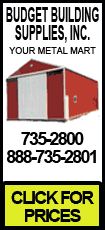 To help assure that safer toys are making their way to U.S.
consumers, lawmakers introduced the safety act, which was signed
into law on Aug. 14, 2008, by President Bush. The act includes
regulations for lead and a ban on certain phthalates in products
designed for children 12 and younger. To help assure that safer toys are making their way to U.S.
consumers, lawmakers introduced the safety act, which was signed
into law on Aug. 14, 2008, by President Bush. The act includes
regulations for lead and a ban on certain phthalates in products
designed for children 12 and younger.As of Feb. 10, 2009, all
toys must comply with the requirements established for total lead
content, phthalates and mandatory toy standards under ASTM F 963:
"Consumer Safety Specification on Toy Safety." Third-party testing
will be required to support certification to the safety act's
regulations for toys and children's products.
Although the U.S. Consumer Product Safety Commission has voted to
grant a
one-year stay of enforcement for third-party testing and
certification requirements, manufacturers of toys are still required
to comply with the regulations for total lead content (600 parts per
million maximum limit) and phthalates (1,000 parts per million
maximum limit), as well as with the mandatory toy standards under
ASTM F 963. In addition, manufacturers are still required to have
third-party testing for pacifiers, cribs, children's products with
small parts, and lead in paint.

Regardless of the one-year extension, toy manufacturers are urged
to act now, as major U.S. toy retailers are requiring third-party
testing to verify that toys sold in their stores have met the
requirements by the set deadline. California's Proposition 65
already requires third-party testing for toys sold in the California
to verify that manufacturers meet the requirements established for
lead and phthalates.'The one-year extension was designed to give the
Consumer Product Safety Commission the opportunity to establish
rules needed for implementation of the lead provisions, time to rule
on exemptions and exclusions from select provisions, and time to
provide detailed guidance, particularly for home-based toy
manufacturers that may have difficulty meeting the new requirements.
The Consumer Product Safety Improvement Act will implement
increasing levels of regulation over time, with the next deadline
for toy manufacturers set for Aug. 14.
Click here to view a timeline of key dates.
"NSF's ISO 17025 accreditation has been the foundation for our
plastic pipes, mechanical plumbing, food equipment and pools testing
programs since 1996," said Bob Frayer, director of NSF's engineering
laboratories. "Now that we have ISO 17025 accreditation for consumer
product testing, we can provide toy manufacturers with additional
testing services to help them meet the new requirements set forth by
the CPSIA."
[to top of second column] |

The NSF toy safety program tests a product and its components for
several aspects of toy safety, including heavy metal testing (lead
and others), mechanical and physical safety, flammability, chemical
composition, phthalate content, and electrical safety. NSF can help
manufacturers develop a customized laboratory testing program that
results in saving time and costs by avoiding unnecessary testing.
For example, if the same material is being used, it only needs to be
tested once. Batching discounts are also offered if several similar
toys need to be tested for lead; these toys can be tested together.
For additional information, contact Dave Parzen, technical
manager of toy safety, at 734-827-6859 or
parzen@nsf.org. For more
information on the new legislation, visit
www.playsafer.org. A "Play
Safer Fact Kit" for consumers is also available at
www.nsf.org.
___
About NSF International: NSF
International, an independent, not-for-profit organization,
helps protect the public by certifying products and writing
standards for food, water and consumer goods (). Founded in 1944,
NSF is committed to protecting public health and safety worldwide.
NSF is a World Health Organization Collaborating Centre for Food and
Water Safety and Indoor Environment. Additional services include
safety audits for the food and water industries, management systems
registrations delivered through NSF International Strategic
Registrations, organic certification provided by Quality Assurance
International, and education through the NSF Center for Public
Health Education.
[Text from file
received from NSF International]

 |